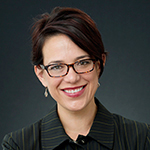By Amy Butler
 I had the great pleasure of spending a few days last week at the New Baptist Covenant meeting in Atlanta. We gathered to talk about congregations making covenants with each other, committing to the work of healing the world while building relationships with people whom they might not encounter otherwise.
I had the great pleasure of spending a few days last week at the New Baptist Covenant meeting in Atlanta. We gathered to talk about congregations making covenants with each other, committing to the work of healing the world while building relationships with people whom they might not encounter otherwise.
It was a hope-filled Baptist meeting, unusual in my experience of Baptist meetings, if only for the diversity represented. I also saw real and deep relationships there, the kind of relationships that can shift paradigms and cross boundaries, help us confront sin — our own and our society’s — and then transform broken systems.
It was a gift to be with these friends in the wake of a few months filled with the growing public awareness and outrage of deep systemic racism in our country. I, myself, am still trying to sort out an experience of traveling to Ferguson, Mo., after the decision not to indict Darren Wilson, the police officer who killed Michael Brown. The lessons I learned there about systemic and pervasive racism, about inequity and unfairness that have become embedded in the culture of our country, raised my own awareness of a situation that desperately calls for a strong and persistent response from the church.
Since then, I’ve been wondering with increasing urgency: what can we do to keep this call for change alive and at the forefront of our awareness? How can we create a consistent theological framework for talking and listening, learning and changing?
When people of faith finally got outraged enough, we made signs and marched in protests and signed letters and wrote letters to the editor, but that outrage naturally dies down with the passing of time and the numbing recurrence of the same situation over and over. I’m convinced that keeping this issue alive and nagging at the conscience of the church begins with just what I saw at the New Baptist Covenant: relationships. As I shared in my closing remarks at that meeting, I think if the first time we’re meeting each other is in the streets protesting another tragedy, then we, the church, have failed.
As I’ve continued to ponder this challenge facing the church, it occurs to me that as Christians, a central place in which we gather in anticipation of transformation and to gain the courage and tools we need to be agents of the transformation in the world is worship. Creating worship experiences that draw our community together, educate us of stark realities, make space for communal lament, call us to confession, and charge us with change, must be part of the church’s work in American society at this moment in history.
With that in mind, my congregation has planned a service of Seven Last Words. Based on the traditional Holy Week service remembering Jesus’ last words from the cross, we’ve decided to begin the season of Lent with a service where the last words of seven African Americans who have died as a result of police brutality and an unjust system will be read and proclaimed.
I want to go home; Mom, I want to go to college; It’s not real; I don’t want to die; I can’t breathe — these words will be the texts our seven preachers use for their sermons. We’ll invite our community to join us as we sing and pray, reflect and repent together in the spirit of the Lenten season, assured that the work of worship equips us to be agents of reconciliation and justice in the world.
In recent years some would say that the church has lost its voice, that our communities of faith bring nothing of substance to bear on the real and pressing issues of justice today. I don’t think that’s true, but I do think that people of faith will have to continue to work hard to raise their voices and gather their communities together to show the world that there is a better and more life-giving way to live in community together. We know this, because we live it in our faith communities. And we can lead the way.
The Riverside Church will hold a service of Seven Last Words on Friday, Feb. 20, at 7 p.m. More information about the service is available here, and a guide for planning a Seven Last Words service in your own community will be available for download soon.
